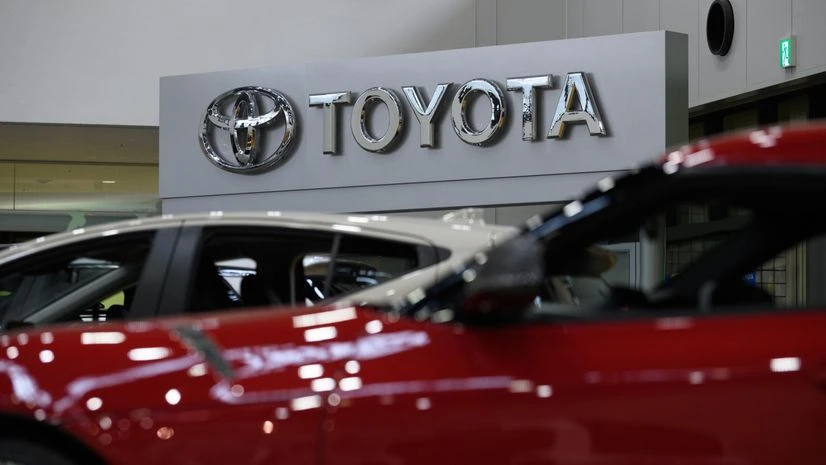Toyota Motor is expected to get a big lift from demand for hybrids when it reports annual earnings on Wednesday, illustrating how the world's top-selling automaker is poised to benefit as hype around battery electric vehicles cools.
But the forecast record results, to be helped in part by a boost from the weak yen currency, belie the considerable challenges it faces in critical markets. In China it is pressured by a ferocious price war and in the US, the fallout from consumers grappling with higher borrowing costs.
Globally, it has felt the pinch of growing competition from Chinese rivals rapidly expanding production of low-priced vehicles. Meanwhile, a safety test scandal at its Daihatsu compact car unit has hurt sales in Japan and the Toyota group's reputation for quality and safety.
In February, the Japanese automaker raised its operating profit forecast for the financial year ended March 31 to 4.9 trillion yen ($31.87 billion), a result that would mark a record profit and an 80 per cent increase on the previous year.
For the fourth quarter, it is expected to deliver an operating profit of 747 billion yen, according to the average of nine analysts polled by LSEG.
As global demand for battery-powered EVs has slowed, Toyota has cashed in by selling more hybrids, which come with relatively higher margins than regular gasoline cars.
More From This Section
Toyota pioneered hybrids more than a quarter of a century ago with the Prius. They made up more than a third of the 10.3 million cars it sold in the financial year just ended, including the Lexus luxury brand.
While strong in hybrids, Toyota remains a laggard when it comes to EVs, behind rivals such as Tesla and European and Chinese automakers.
Battery EVs made up just 1 per cent of global sales in the year just ended, or about 116,500 vehicles, well below a previously announced target of 202,000 vehicles.
The fate of its business in China is likely closely tied to its EV strategy. Given Chinese buyers prefer software-loaded cars, Toyota, may not be able to make a big splash over the next three years until it releases next-generation models in China, said Koji Endo, head of equities research at SBI Securities.
"It's obvious that they're behind in terms of software," he said.
Toyota said it would partner with Chinese tech giant Tencent and unveiled two battery EVs for the Chinese market at the recent Beijing auto show.
Toyota's China sales were down 1.6 per cent over the first quarter of the 2024 calendar year, better than sharper declines of Japanese rivals Nissan and Honda, but worse than a 12.5 per cent rise in passenger vehicle sales sector-wide, according to data from an auto industry association.
In the US, they were up 20 per cent to 565,000 vehicles over the period.
Shares of Toyota are up 96 per cent in the last year, including dividends. In dollar terms, they are up 71 per cent , compared to a 7.5 per cent increase by Tesla over the same period.
(Only the headline and picture of this report may have been reworked by the Business Standard staff; the rest of the content is auto-generated from a syndicated feed.)

)
